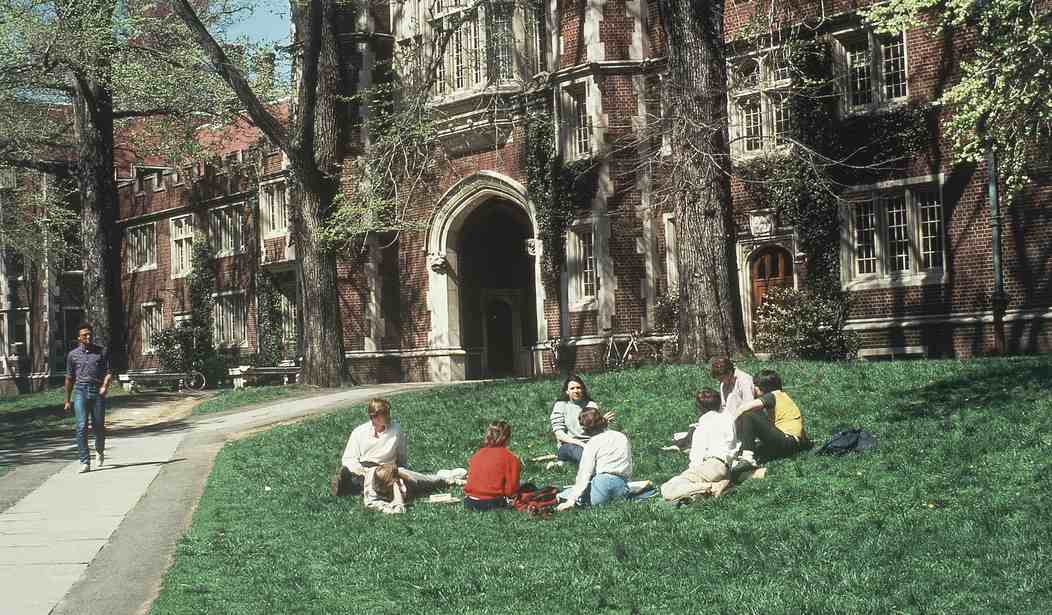The great sportswriter Grantland Rice would eventually call them the "team of destiny."
But when that 1922 Princeton University football team headed West to play Coach Amos Alonzo Stagg's University of Chicago team, Rice had predicted they would lose.
"The Tiger will give Chicago a first class battle, but the heavier attacking Maroon team figures to win by one or two touchdowns," Rice wrote in a column that ran on Oct. 28, 1922.
The Tigers proved Rice wrong.
A headline in the New York Tribune the next day said: "Princeton Eleven Scores Sensational Victory Over Chicago, Winning 21 to 18 in Final Period."
Three weeks later, a still-undefeated Princeton went into its season finale against Yale.
The Tribune carried Rice's story about that game on the front page of its Sunday edition. The headline read: "Kick Wins For Princeton Over Yale, 3-0." A subhead said: "Record Crowd of 55,000 at Nassau Sees 'Team of Destiny' Hold Fierce Onslaughts of Bulldog."
"The Tiger defended his jungle home today with the savage power of a great defense, and so for the first time in eleven years Princeton stands with a spotless record on top of the football peak," wrote Rice. "Back in 1911, during the conquering reign of King Samuel White, Princeton trimmed both Harvard and Yale, but her triumph today was even greater, as Bill Roper's star-eyed team of destiny roved unbeaten East and West through one of the greatest seasons any football caravan has ever known."
The NCAA's website now lists the 1922 Princeton team as sharing that year's national championship with California and Cornell.
Recommended
The Tigers started their 1923 season with wins over Johns Hopkins and Georgetown -- but then they took on Notre Dame.
The game was played in Palmer Stadium at Princeton one week after the Irish beat Army 13-0 at Ebbets Field -- then the home of the Brooklyn Dodgers. Notre Dame beat Princeton 25-2. As reported in the Brooklyn Standard Union, Don Miller, Harry Stuhldreher and Elmer Layden all scored touchdowns in that game. Afterward, Princeton Coach Bill Roper went to the Irish locker room.
"How about another game next year?" Roper asked Notre Dame Coach Knute Rockne, according to a report by the Associated Press.
Rockne replied: "It's ok with me."
On Oct. 18, 1924, a week before that year's Notre Dame-Princeton game, the Irish played Army again -- at the Polo Grounds in New York. This time, Notre Dame won 13-7.
One of the sportswriters covering that game was Grantland Rice. The syndicated story he wrote about it -- which was published in the South Bend Tribune -- started as follows: "Outlined against a blue, gray October sky the four horsemen rode again.
"In dramatic lore," wrote Rice, "they are known as famine, pestilence, destruction and death. These are only aliases. Their real names are: Stuhldreher, Miller, Crowley and Layden. They formed the crest of the South Bend cyclone before which another fighting army team was swept over the precipice at the Polo Grounds this afternoon as 55,000 spectators peered down upon the bewildering panorama spread out upon the green plain below."
Thus, 100 years ago this month -- thanks to the eloquence of a great sportswriter -- an American football legend was born: the Four Horsemen of Notre Dame.
And then, thanks to the agreement that Coach Rockne had made with Coach Roper the year before, the fighting Irish -- and their newly named Four Horsemen -- had to travel once again to Palmer Stadium to take on the Princeton Tigers.
The Irish beat the Tigers 12-0, and the next day the Brooklyn Eagle ran a story describing Notre Dame's dominant running game.
"The halfbacks of Notre Dame ran riot in defeating a mediocre looking Princeton by the score of 12-0, a tally which by no means represents the overwhelming superiority of the Westerners," wrote the Eagle's George Trevor.
"Now it is Elmer Layden, the human mole, on a bullet like plunge through the heart of the brawny Tiger line," wrote Trevor. "Layden who keeps churning ahead with three Princeton tacklers draped on his back."
"Now it is Don Miller's turn," wrote Trevor. "Miller with the speed of the antelope and the elusiveness of the serpent."
"Now it is Jim Crowley's chance," he wrote. "Crowley the whirling dervish, Crowley the fighter, who literally claws his way through the heart of the melee; Crowley who deliberately offers a tackler his foot and then withdraws it; Crowley who refuses to be stopped even when three pairs of orange-striped arms are clutching his blue jersey."
Crowley made Notre Dame's second touchdown that day when he caught a pass from another of the Four Horsemen.
"Stuhldreher passed to Crowley, who carried the ball over the line for Notre Dame's second touchdown," reported the Brooklyn Daily Times.
Thus, Princeton -- one of the teams that helped invent American football -- and that as the "team of destiny" shared a national championship in 1922, lost to the 1924 Notre Dame team that remains an American legend 100 years later.

























Join the conversation as a VIP Member